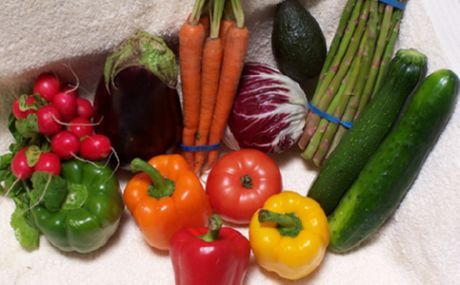Medical expert of the article
New publications
How to prepare food for good digestion
Last reviewed: 04.07.2025

All iLive content is medically reviewed or fact checked to ensure as much factual accuracy as possible.
We have strict sourcing guidelines and only link to reputable media sites, academic research institutions and, whenever possible, medically peer reviewed studies. Note that the numbers in parentheses ([1], [2], etc.) are clickable links to these studies.
If you feel that any of our content is inaccurate, out-of-date, or otherwise questionable, please select it and press Ctrl + Enter.

Only vegetables and fruits can be eaten without preliminary processing. If, of course, they are washed well beforehand. All other products need to be processed - either cut, or steamed, or boiled, or fried, or baked. How to properly prepare food so that the body can assimilate and digest it?

What foods stimulate appetite?
Absolutely not those that just lie in supermarket trays raw. In order for a person to have an appetite for digesting food, you need to carefully prepare the products, make them attractive for absorption. That is, process them at a high temperature - boil or fry. A delicious aroma, a golden crust, seasonings and spices make products desirable for most consumers. If they are not raw foodists.
Rough or thorough processing of food prepares it for digestion, causing increased salivation. But the trick is that processing food, although it prepares it for digestion, deprives it of many useful properties.
For example, during heat treatment, many vitamins can be destroyed by up to 80% - in particular, vitamin C. This is why chefs who know how to process products while preserving most of their beneficial properties are so highly valued among gourmets and simply lovers of a healthy lifestyle.
Spices for digestion of food
Spices promote increased salivation and also improve the taste of food. Thanks to spices, the digestive tract is activated, as well as the motility of the intestines and stomach. But if a person abuses spices, digestive juices will be secreted in excess, and this leads to heartburn and destruction of intestinal and stomach tissue. This is especially harmful for those who suffer from gastrointestinal diseases.
Food as a source of fuel for the body
What is the first step in digesting food? Believe it or not, the digestion process begins before we even put food in our mouths. It begins when something smells irresistible, or when you look at your favorite food and know it will taste good. Just smelling a homemade apple pie and thinking about how delicious it is will start your saliva production, and the digestion process is underway.
If it's been a while since your last meal, or even if you're thinking about something delicious, you're hungry. You eat until you're satisfied, then go about your business. But for the next 20 hours or so, your digestive system is doing its thing, and the food you've consumed is moving through your body.
Food is the body's fuel source. The nutrients in food give the body's cells the energy they need to work. But before food can provide that energy, it must be broken down into smaller pieces that the body can absorb and use.
As you absorb the nutrients from food (including carbohydrates, proteins, fats, vitamins, and minerals), they pass through your digestive tract, are absorbed into your intestinal walls, and enter your bloodstream. Your blood works to distribute these nutrients so that the rest of your body can get them, too. The waste portion of the food your body can't use is processed into feces.
Food Processing Standards
To prepare food for digestion, it is necessary to handle it properly. Following the correct procedures for handling food is important to minimize the risk of contamination. The most important preventive measures for handling food relate to personal hygiene, these include:
Keep your body clean and wear clean clothes
- Always wash your hands thoroughly with warm water and soap and dry them thoroughly. Do this before handling food, after using the toilet, after handling raw food or waste, before starting work, after each break, and after blowing your nose.
- Consider before you start work for the day whether you have any wounds or infections on your skin, diseases of the nose, throat, stomach or intestines
- Cover cuts and wounds with waterproof tape.
- Avoid unnecessary processing of foods
- Do not smoke, eat or drink near uncovered food, and never cough or sneeze near food preparation areas.
- Keep your stove and counter surfaces where you prepare food, as well as your kitchen equipment, clean.


 [
[